Episode 33: Personality
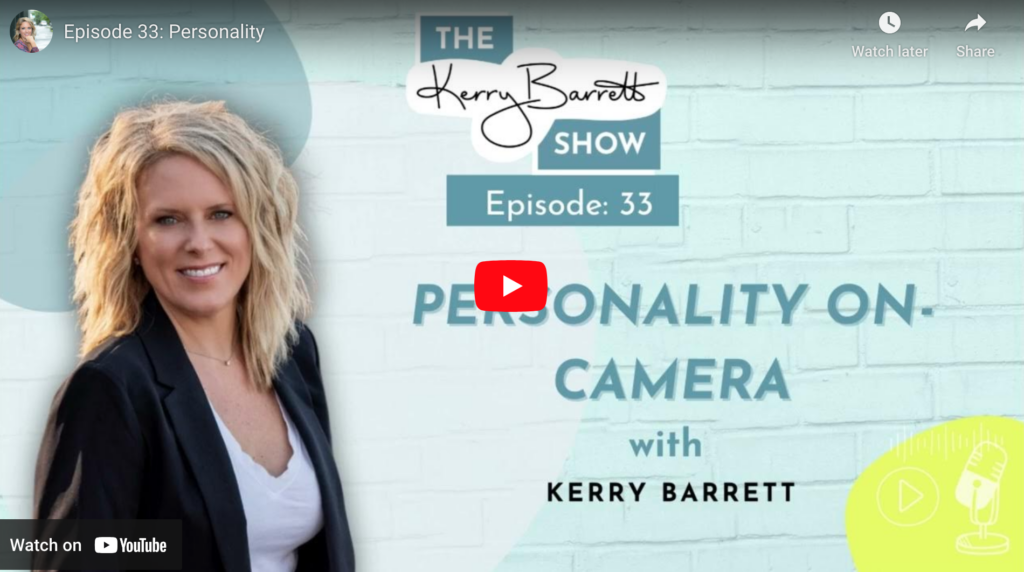
“If you can get your audience to smile or laugh and the rest of your message is on point, you’re 90% of the way there.” Unveil the sweet spot between personality and professionalism in virtual communication.
(more…)
“If you can get your audience to smile or laugh and the rest of your message is on point, you’re 90% of the way there.” Unveil the sweet spot between personality and professionalism in virtual communication.
(more…)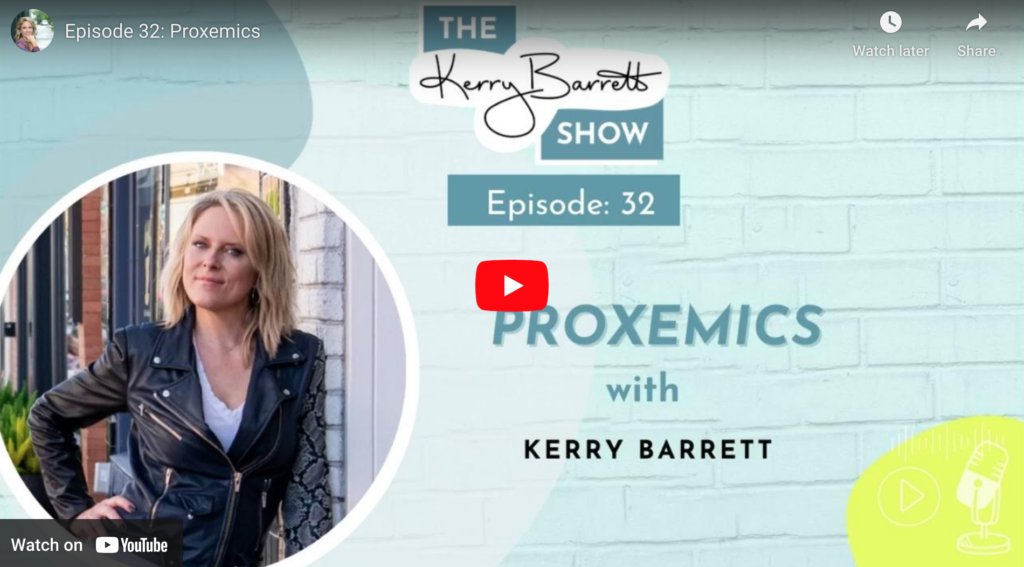
Get ready to explore the world of #Proxemics and how it affects video chats! We’ll talk about how different distances between people on screen can impact how we feel and how we lead. Proxemics is all about the space between people when they interact. It’s super important for making online conversations feel natural and for making our message stronger. Understanding this can help us reach more people, build trust, and make our brand known online.
(more…)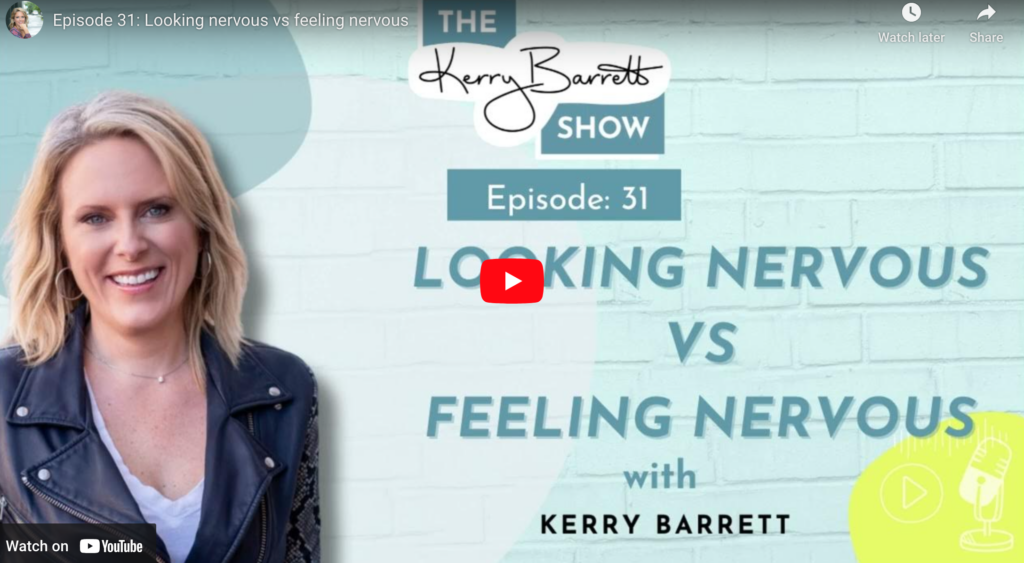
Join me on The Kerry Barrett Show as we explore the difference between looking nervous and feeling nervous. As a communication expert, I’ve dedicated years to exploring how style versus substance impacts public speaking. In this episode, we’ll unpack the significance of vocal variety and body language in captivating your audience, and I’ll share strategies for overcoming nervousness and handling mistakes like a pro.
(more…)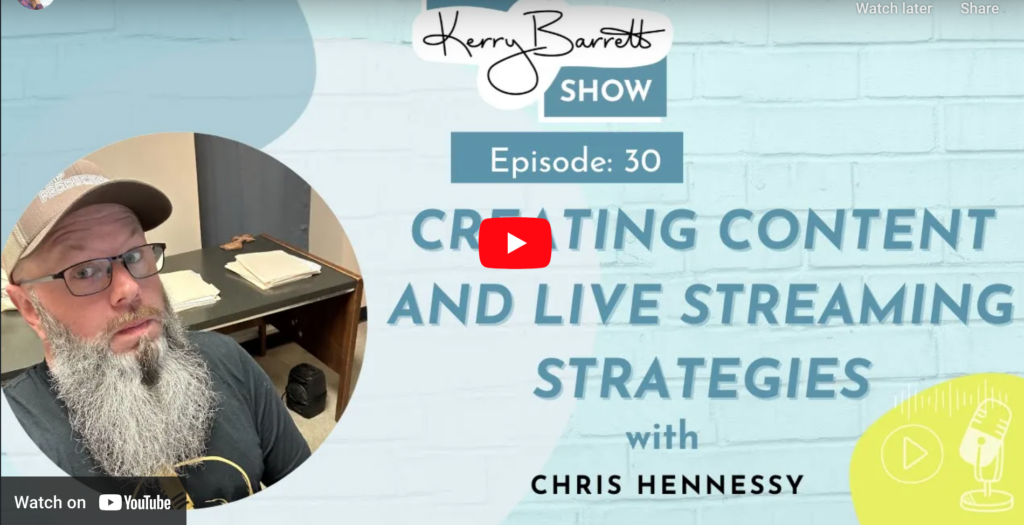
In this episode of The Kerry Barrett Show, we’re diving into Creating Content and Live Streaming Strategies with our guest Chris Hennessy, Founder and Executive Producer of HIP Productions.
(more…)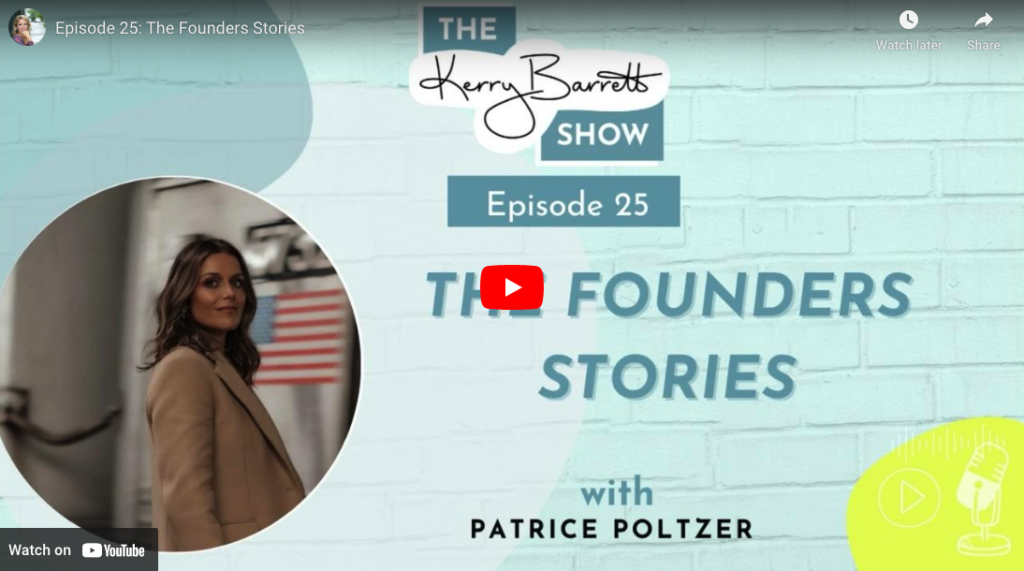
In this insightful episode, Patrice Poltzer, a renowned storytelling strategist, shares her expertise on crafting compelling founder stories that resonate with audiences. Patrice delves into the importance of authenticity, vulnerability, and strategic storytelling for entrepreneurs looking to connect with their audience. She explores the process of identifying key moments in one’s life, understanding audience psychographics, and leveraging AI for enhanced emotional connection. Join the conversation and explore the nuances of founder storytelling and its transformative impact on businesses.
(more…)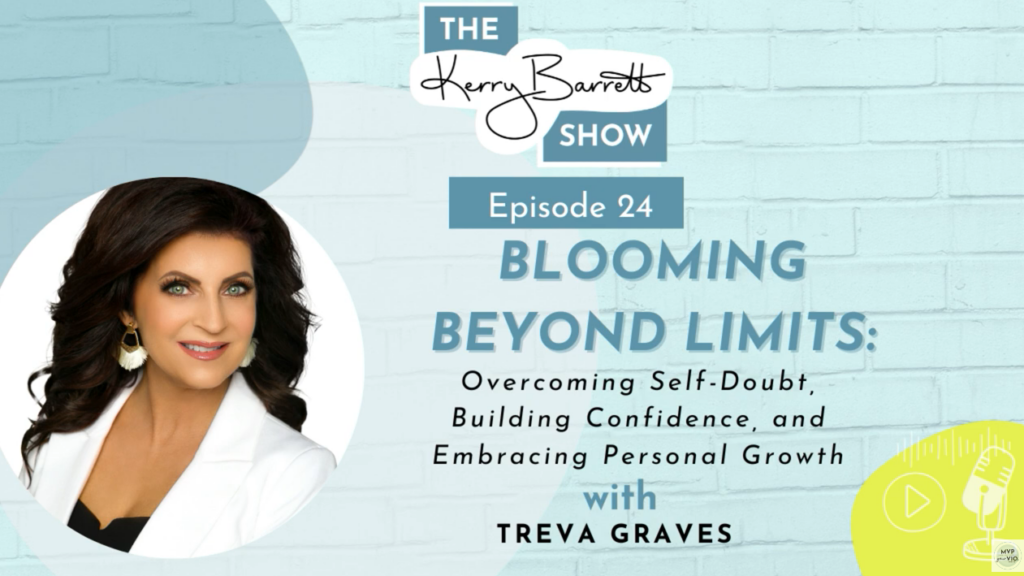
In this enriching episode, I had the pleasure of welcoming Treva Graves, a dear friend and an expert in personal branding. With a decade of experience, Treva, the brilliant mind behind Bloom Personal Branding, shared her captivating journey—from childhood insecurities to navigating through the challenges of school bullying.
As Treva recounted her personal transformation, it became evident that the turning point in her life was marked by a decision to take control. Seeking mentorship and venturing into pageants, she discovered a path to boosting her confidence and overcoming the insecurities that had plagued her.
(more…)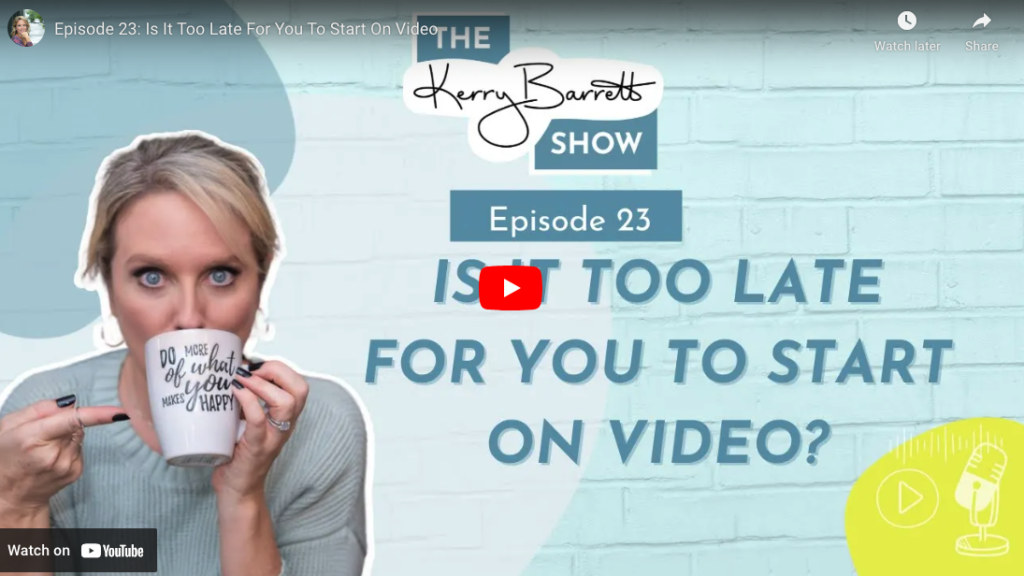
In this episode of The Kerry Barrett Show, Kerry tackles the question of whether it’s too late to get into the video game. She reassures listeners that there is still room for them, even if they’re just starting out. While it may seem like everyone is creating video content, Kerry explains that the majority of business owners and professionals are actually just digital lurkers, consuming content without creating their own. She encourages listeners to focus on their target audience and provide valuable content, as there is plenty of room for new ideas and personal brand growth. Kerry emphasizes that now is the time to get started and not give up.
(more…)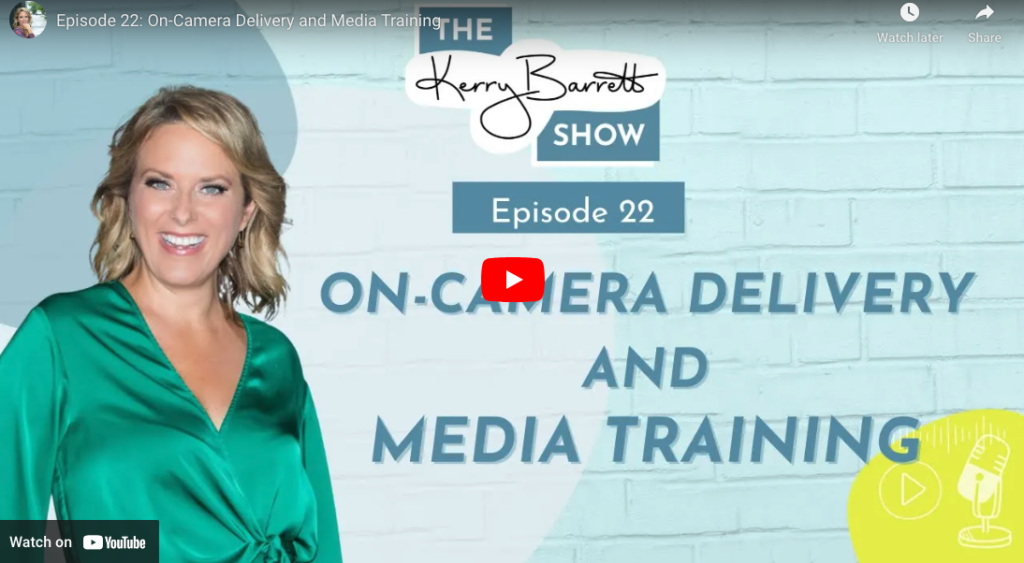
In this episode, Kerry Barrett discusses the importance of on-camera delivery and media training for both marketing and sales purposes. She emphasizes the significance of camera presence on social media platforms, as well as the use of long-form live videos in webinars, podcasts, and masterclasses. Kerry highlights the alarming statistic that 63% of people leave webinars, even if they’ve paid for them, due to the host being boring. She stresses the need for effective presentation skills on camera and mentions that logistical aspects such as lighting, audio, and setting up the shot can be easily fixed once you know how.
(more…)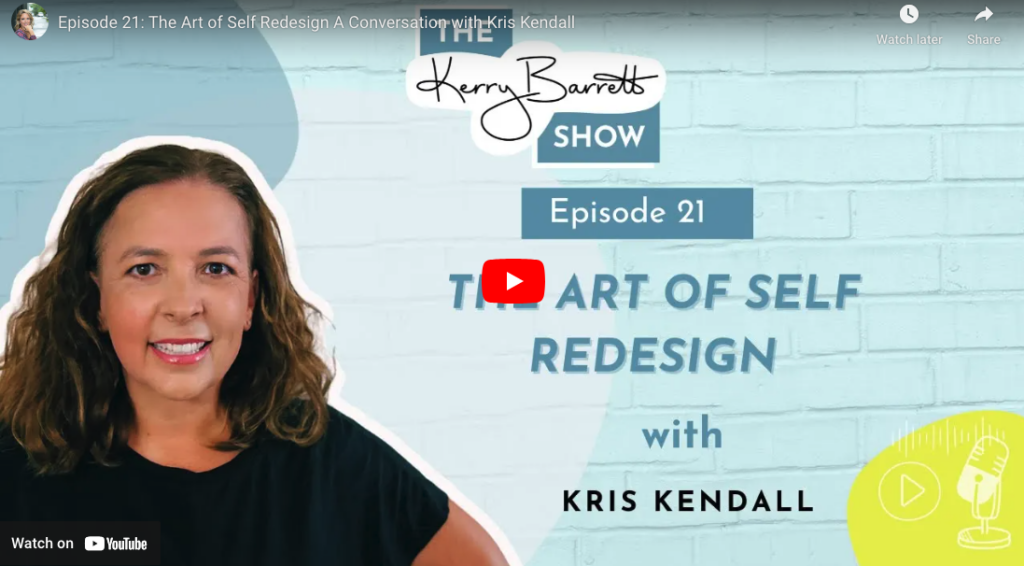
Kris spent the first half of her life working in Silicon Valley for large and small companies, building marketing programs to grow them to billion-dollar enterprises. And then she realized she had dreams of her own. Now, she enables women over forty to identify and pursue their passions and interests to create the second half of their life that brings fulfillment and joy.
In this episode of The Kerry Barrett Show, host Kerry Barrett interviews Kris Kendall, the founder of Fulfilled After Forty. Kris helps women over 40 find their purpose and passion in life, guiding them toward their goals for the next chapter. Kris shares her journey of transitioning from a successful career in Silicon Valley to pursuing her new dreams and how she helps others do the same. Tune in to learn more about finding fulfillment after 40.
(more…)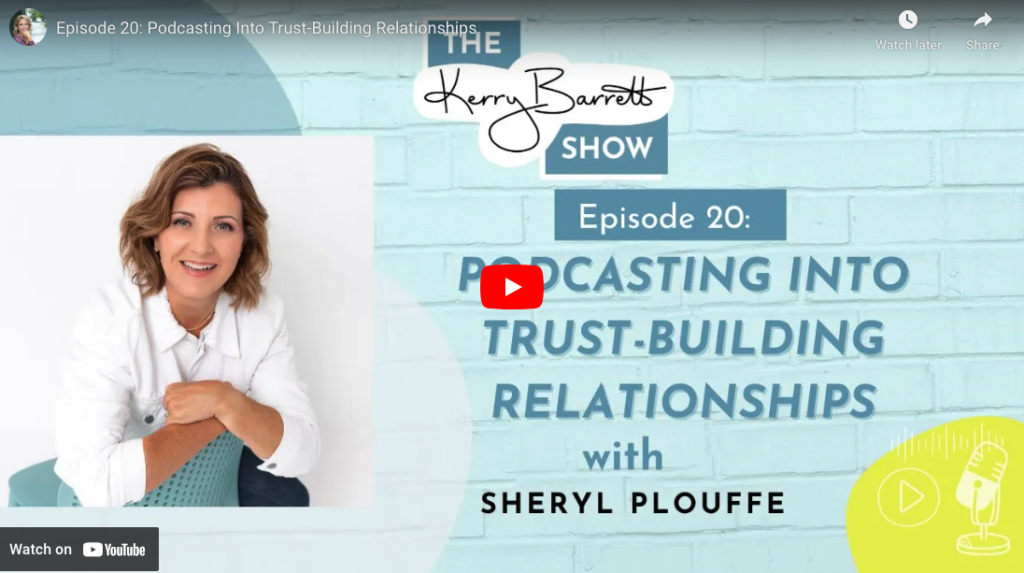
Uncover the strategies, techniques, and authentic approaches to connect with your audience on a deeper level. Sheryl shares her experiences and expert insights, providing a roadmap for creating episodes that resonate and foster lasting relationships. Whether you’re a seasoned podcaster or just starting, this episode is a must-listen for anyone looking to elevate their trust-building game through the power of podcasting.
(more…)